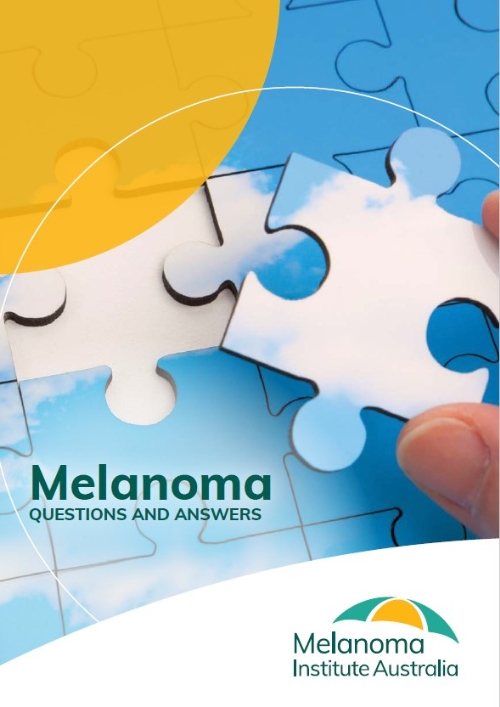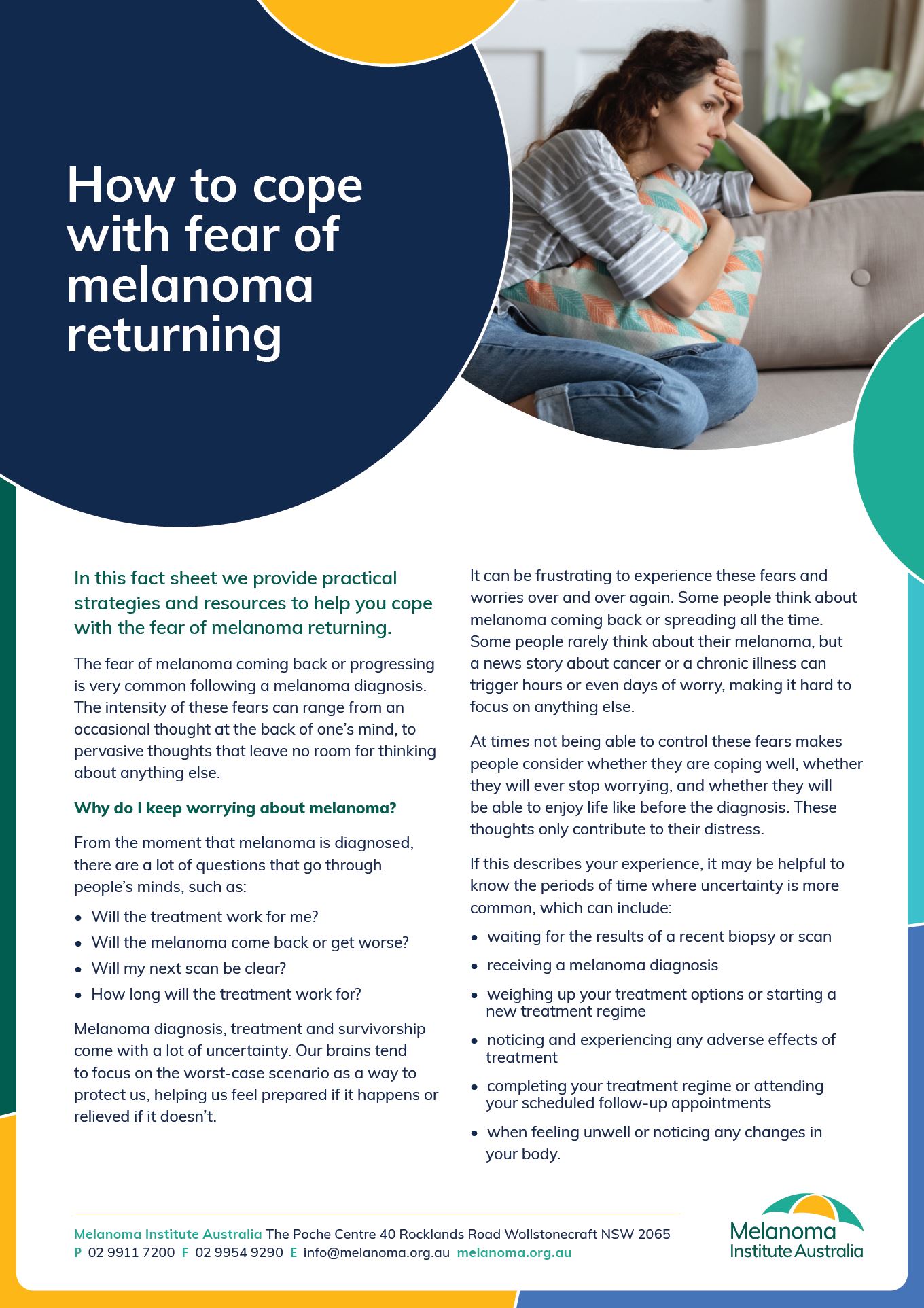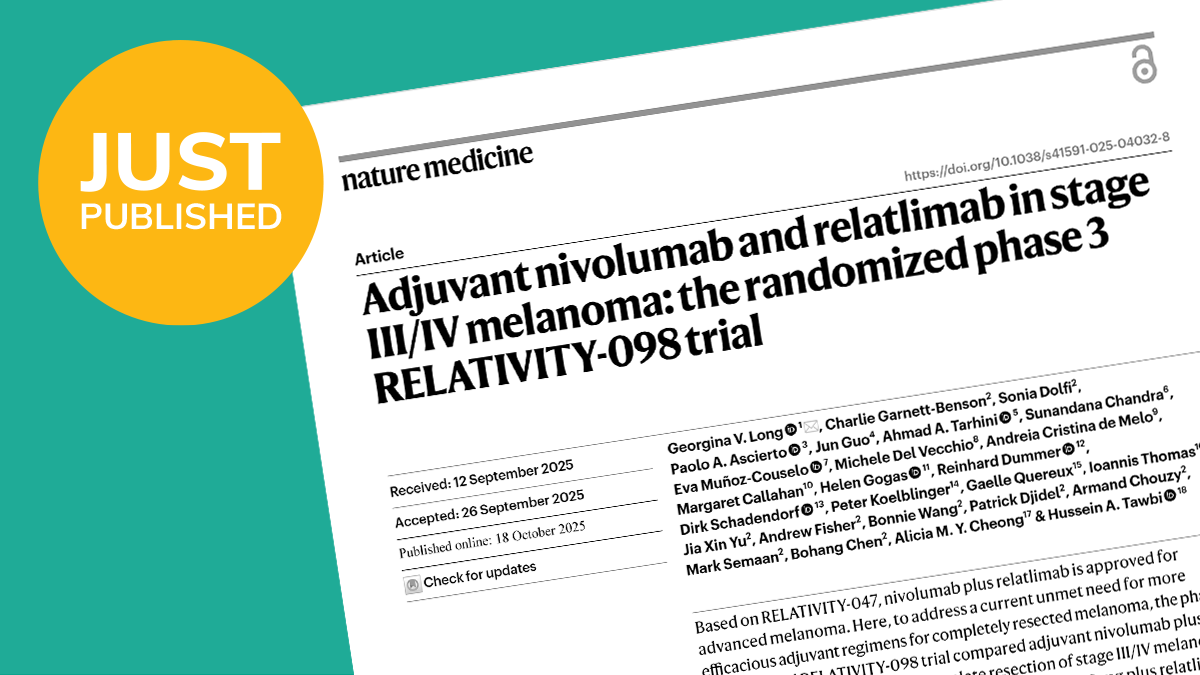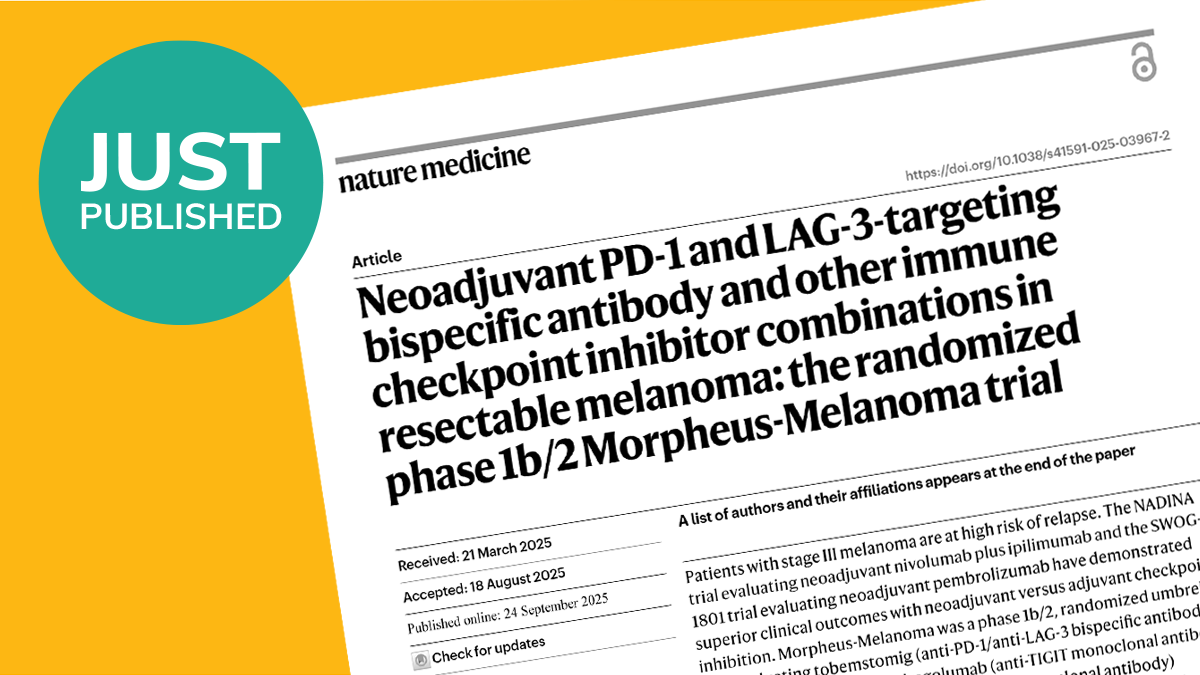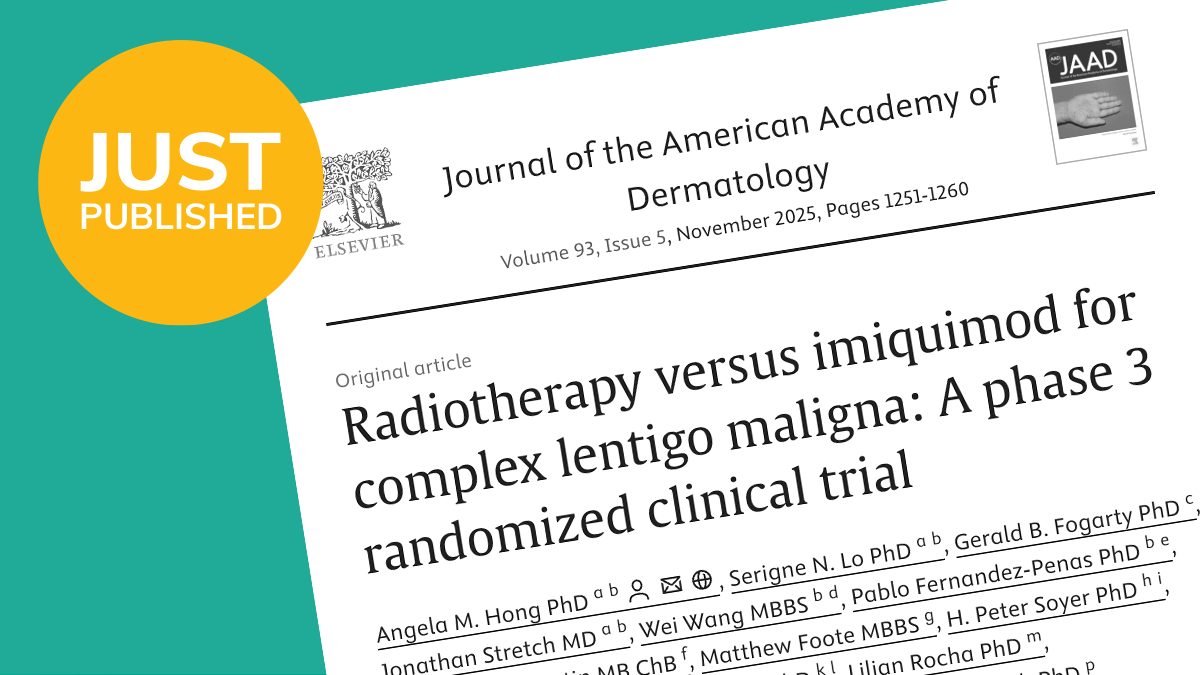A study has been released investigating the effectiveness of a Melanoma Care Program for patients with early-stage melanoma who had varying degrees of fear of cancer recurrence (FCR) after treatment of their primary melanoma.
The results showed the program was effective in reducing short term fear of cancer recurrence with efforts now needing to focus on interventions to address longer-term fears.
The paper on this study, titled “Short-Term Effectiveness of a Stepped-Care Model to Address Fear of Cancer Recurrence in Patients with Early-Stage Melanoma” was recently released in the Psycho-Oncology journal.
“This is the first study to implement a specific intervention for FCR into routine clinical care,” said paper lead author and Melanoma Institute Australia’s Psychosocial and Supportive Care Researcher Jake Thompson. “We found the results to be promising: at one week post intervention, 30% of patients with moderate FCR and over 50% of those with severe FCR had significantly improved measures. Additionally, participants also reported improvements in melanoma-related knowledge, depressive symptoms, anxiety, stress, and health-related quality of life.”
The Melanoma Care Program is a stepped-care model, with the level of care offered to a patient dependent on their FCR levels.
146 patients with a Stage 0-II melanoma diagnosis completed FCR screening, with higher scores indicating greater FCR severity. These scores were used to triage patients into the stepped-care model.
Participants who scored 12 or under (low FCR) received standard melanoma follow-up care.
Participants who scored 13-21 (moderate FCR) received standard care plus were given a psychoeducational booklet called Melanoma: Questions and Answers (MQA). These patients were also offered three telehealth sessions with a psychologist.
Participants who scored 22 and above (severe FCR) were provided with the MQA booklet and given five telehealth sessions with a psychologist.
“Fear of cancer recurrence is common in early-stage melanoma patients,” said MIA’s Associate Professor Robyn Saw, a study author. “In fact, approximately 79% of patients who showed interest in participating in the study reported FCR levels which required intervention.
“Given the program’s effectiveness in reducing short term FCR, we now need to assess the effectiveness of this stepped-care model in addressing FCR at 12- and 18-months post diagnosis.”
Information for Patients

